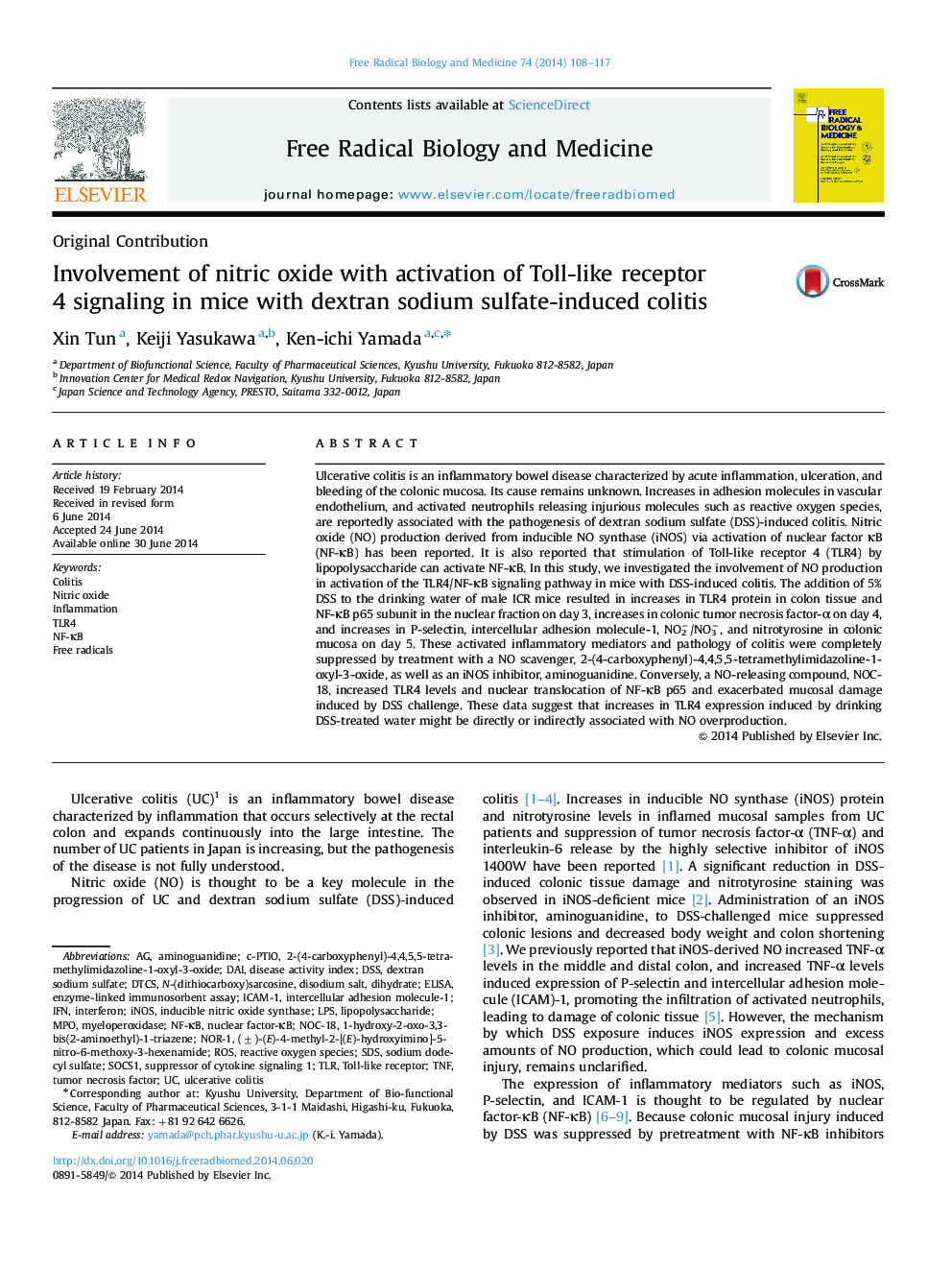| کد مقاله | کد نشریه | سال انتشار | مقاله انگلیسی | نسخه تمام متن |
|---|---|---|---|---|
| 1908299 | 1534968 | 2014 | 10 صفحه PDF | دانلود رایگان |
• NO production accelerated by DSS-induced TLR4 signaling was detected in colonic tissue.
• c-PTIO inhibited DSS-induced increase in TLR4, NF-κB, and nitrotyrosine as well as aminoguanidine.
• NOC-18 (DETA NONOate) further increased DSS-induced increase in TLR4 and NF-κB.
• NO derived from iNOS accelerated activation of TLR4 signaling in DSS colitis.
Ulcerative colitis is an inflammatory bowel disease characterized by acute inflammation, ulceration, and bleeding of the colonic mucosa. Its cause remains unknown. Increases in adhesion molecules in vascular endothelium, and activated neutrophils releasing injurious molecules such as reactive oxygen species, are reportedly associated with the pathogenesis of dextran sodium sulfate (DSS)-induced colitis. Nitric oxide (NO) production derived from inducible NO synthase (iNOS) via activation of nuclear factor κB (NF-κB) has been reported. It is also reported that stimulation of Toll-like receptor 4 (TLR4) by lipopolysaccharide can activate NF-κB. In this study, we investigated the involvement of NO production in activation of the TLR4/NF-κB signaling pathway in mice with DSS-induced colitis. The addition of 5% DSS to the drinking water of male ICR mice resulted in increases in TLR4 protein in colon tissue and NF-κB p65 subunit in the nuclear fraction on day 3, increases in colonic tumor necrosis factor-α on day 4, and increases in P-selectin, intercellular adhesion molecule-1, NO2−/NO3−, and nitrotyrosine in colonic mucosa on day 5. These activated inflammatory mediators and pathology of colitis were completely suppressed by treatment with a NO scavenger, 2-(4-carboxyphenyl)-4,4,5,5-tetramethylimidazoline-1-oxyl-3-oxide, as well as an iNOS inhibitor, aminoguanidine. Conversely, a NO-releasing compound, NOC-18, increased TLR4 levels and nuclear translocation of NF-κB p65 and exacerbated mucosal damage induced by DSS challenge. These data suggest that increases in TLR4 expression induced by drinking DSS-treated water might be directly or indirectly associated with NO overproduction.
Figure optionsDownload high-quality image (183 K)Download as PowerPoint slide
Journal: Free Radical Biology and Medicine - Volume 74, September 2014, Pages 108–117
